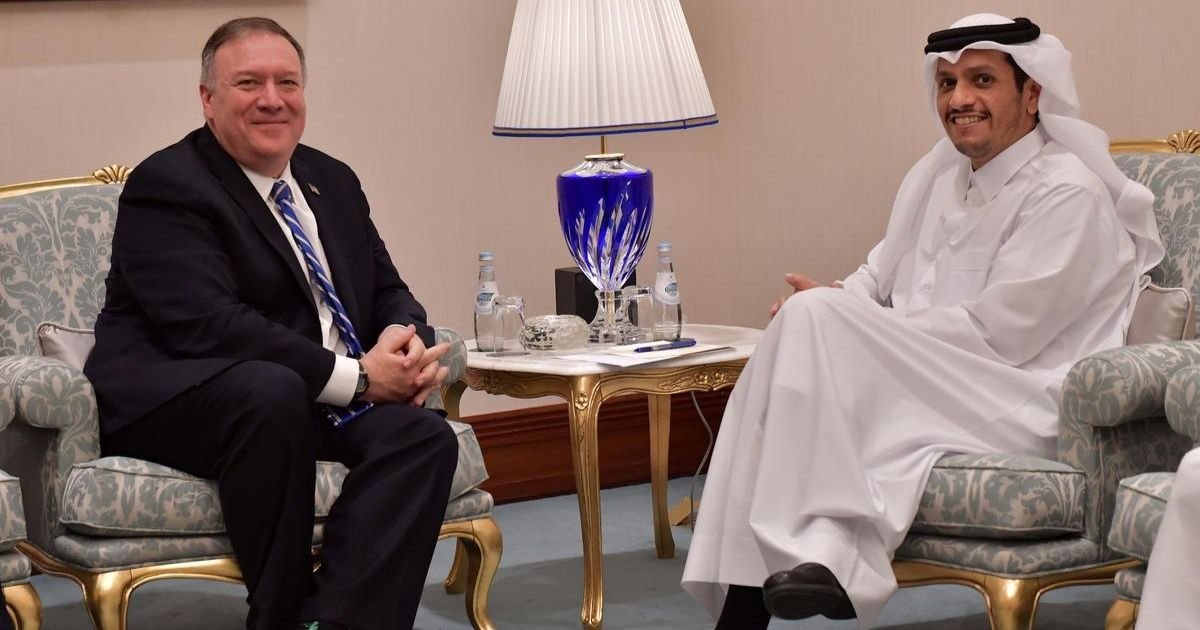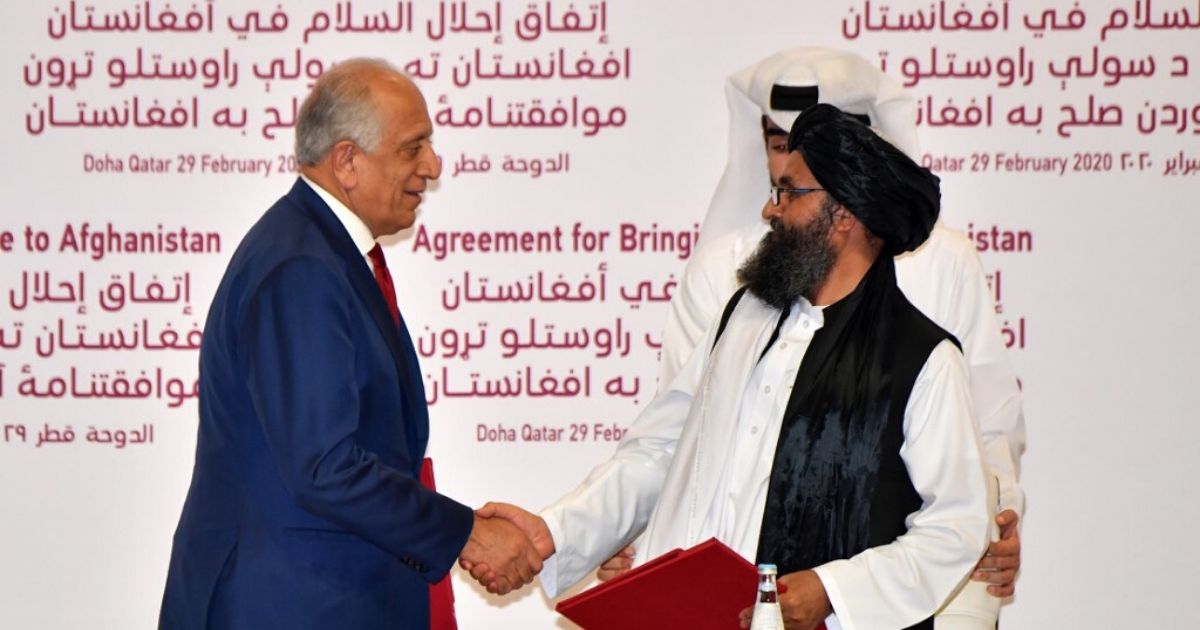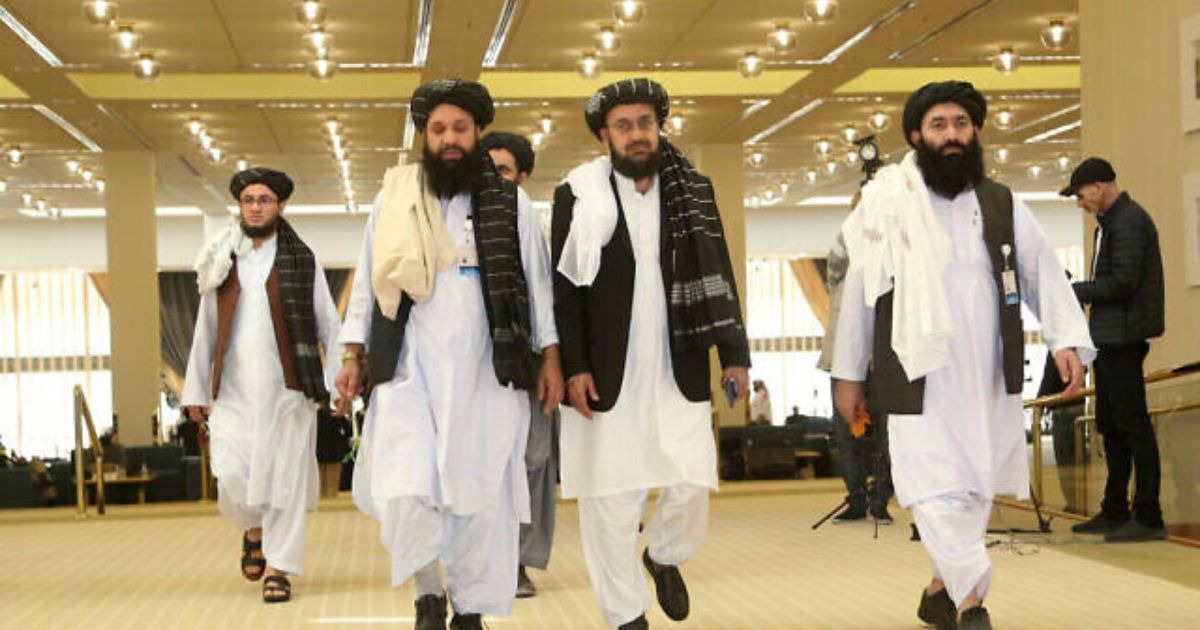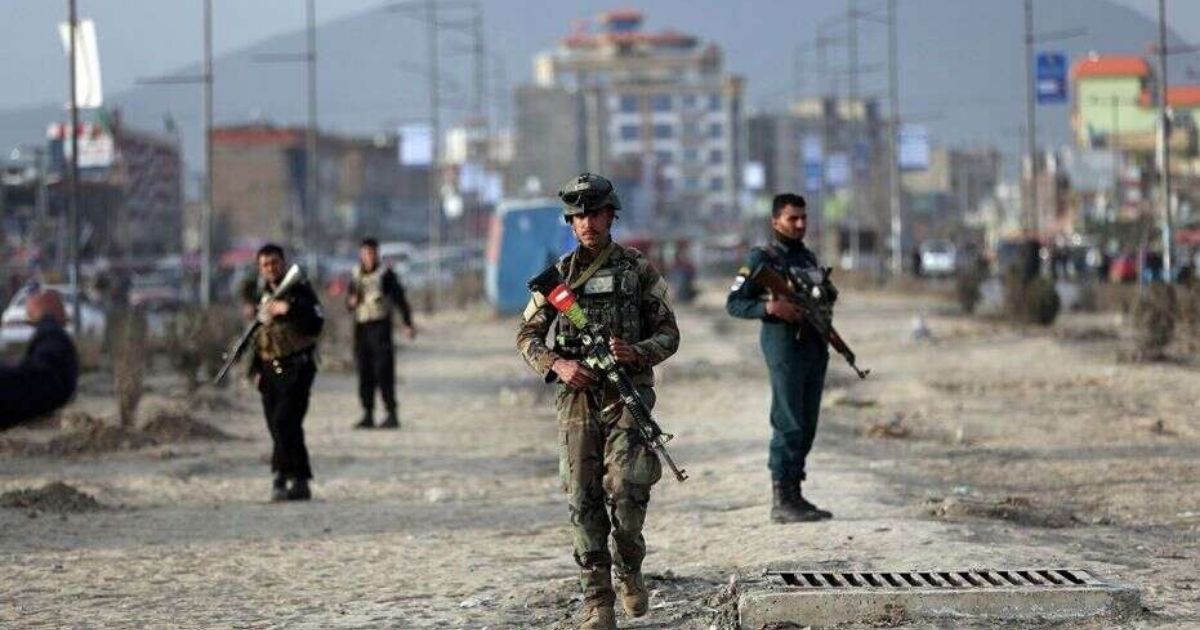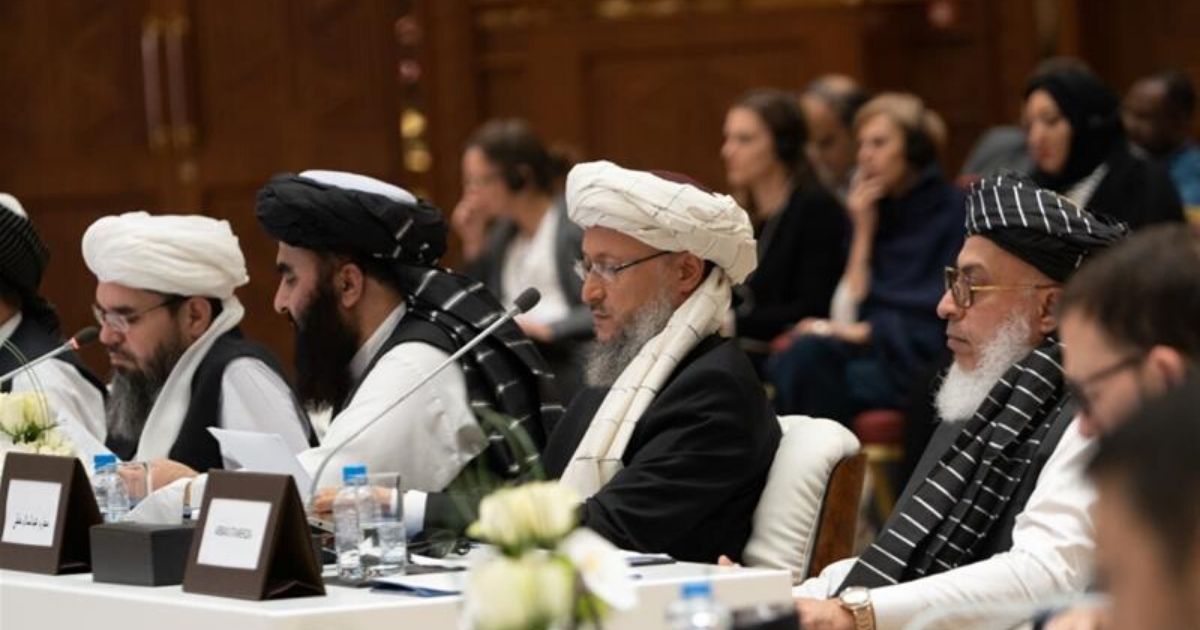Doha, Qatar – The US and Taliban militants signed a peace deal that could signal the end of the US’s longest war after nearly two years of long negotiations in the Qatari capital, Doha.
The U.S. Secretary of State Mike Pompeo talked cautiously in front of the Taliban leaders in Doha, calling the deal a “true test” of their commitment to peace.
“We will closely watch the Taliban’s compliance with their commitments and calibrate the pace of our withdrawal to their actions. This is how we will ensure that Afghanistan never again serves as a base for international terrorists,” Pompeo said.
Before the peace deal signing, the Taliban began a seven-day “reduction of violence” period, as a prerequisite.
Foreign Minister Shah Mahmood Qureshi represented Pakistan in the signing ceremony of peace agreement.
Representatives from fifty countries, including foreign ministers of different countries attended the ceremony.
Under the historic peace treaty, the United States would draw its forces down to 8,600 from 13,000 in the next 3-4 months, with the remaining US forces withdrawing in 14 months. However, the complete would depend on the Talibans meeting their commitments to prevent terrorism.
Another condition of the agreement calls for the release of 5,000 Taliban members from Afghan-run jails, although it was not clear if the Afghan government will comply with that.
“This agreement will mean nothing and today’s good feelings will not last if we don’t take concrete actions on commitments and promises that have been made, I know there will be a temptation to declare victory but victory, victory for Afghans, will only be achieved when they can live in peace and prosper,” Pompeo said.
“Victory for the United States will only be achieved when Americans and our allies no longer have to fear a terrorist threat from Afghanistan and we will do whatever it takes to protect our people.” the US Secretary added.
In response to the Sept. 11, 2001 attacks, President George W. Bush ordered the US-led invasion of Afghanistan. Some US troops who are currently serving there had not yet been born when the World Trade Center collapsed on that crisp, sunny morning that changed how Americans see the world.
The US spent more than $750 billion, and on all sides, the war cost tens of thousands of lives lost, permanently scarred and indelibly interrupted. But the conflict was also frequently ignored by US politicians and the American public.
Mohammad Shafiq Hamdam, senior adviser for NATO in Afghanistan and former deputy adviser to President Ghani the significance of compromising from all parties in a bid to end and resolve the conflict.
“Peace does not come for free. Some things must be compromised to reach a deal,” he said.
The government including the Taliban and Afghan leaders, are expected to meet within 10 to 15 days of Saturday’s signing.
They are expected to negotiate a post-war framework and discuss issues that includes a permanent ceasefire, the governance and the rights of women and minorities.
In 2017, the longest-serving NATO commander in Afghanistan, General John Nicholson, described the war under his command a ‘stalemate’. While the deputy leader of the Taliban, Sirajuddin Haqqani confirmed in his op-ed for the New York Times last week that the Taliban had enough, stating that ”Everyone is tired of war, [it] has exhausted everyone.”


